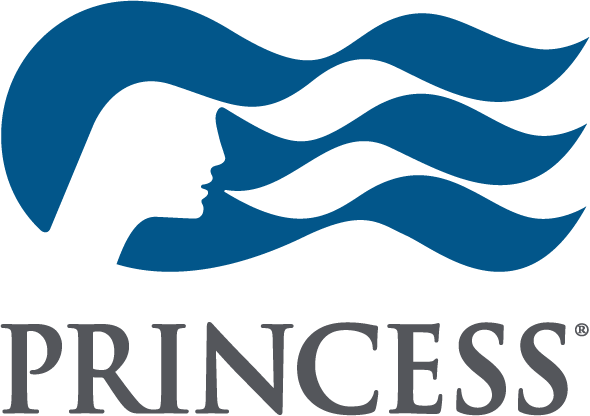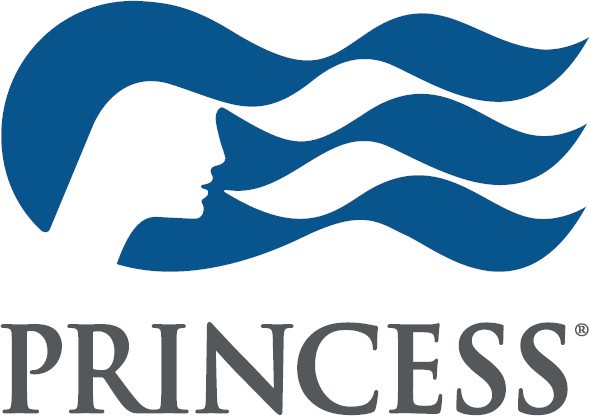Corporate Governance Guidelines
Approved by the N&G Committees: July 9, 2024
Approved by the Boards of Directors: October 9, 2024
CARNIVAL CORPORATION CARNIVAL PLC
CORPORATE GOVERNANCE GUIDELINES
1. Director Qualifications
The Boards of Directors (the “Boards”) of each of Carnival Corporation and Carnival plc (the “Companies”) shall satisfy the applicable requirements for companies listed for trading on the New York Stock Exchange and the London Stock Exchange (the “Exchanges”), requiring that a majority of the members of the Boards satisfy the independence criteria applicable to issuers listed on the Exchanges.
The Nominating & Governance Committees are responsible for reviewing with the Boards, on an annual basis, the requisite skills and characteristics of new Board and incumbent members, as well as the composition of the Boards as a whole. This assessment will include members’ qualification as independent, as well as consideration of diversity, including professions, geographic representations, knowledge, abilities, race, ethnicity, age, gender and sexual orientation and identification, as well as skills and experience in the context of the needs of the Boards. The Boards shall make an affirmative determination as to whether any independent director has material relationships with either of the Companies (either directly or as a partner, shareholder or officer of an organization that has a relationship with the Companies or through their connected persons). The Boards may adopt and disclose categorical standards to assist it in making determinations of independence in accordance with the rules of the applicable Exchanges.
Directors may not serve on the boards of more than four public companies, including the Companies’ Boards (treated as one board). Directors who are executive officers of public companies (including the Companies), however, may not serve on the boards of more than two public companies, including the Companies’ Boards. Directors who are non-executive chairs of public companies may not serve on the boards of more than three public companies, including the Companies’ Boards. Service on the boards of subsidiary companies with no publicly traded stock (or that issue only debt), non-profit organizations and private companies is not included in these calculations. Moreover, if a director sits on several mutual fund boards within the same fund family, it will count as one board for purposes of these calculations. Members of the Audit Committees may not serve on audit committees of more than three public companies, including the Companies (treated as one). The Chair of the Boards and executive officers who serve on the Companies’ Boards may not serve as chairs of the board of any other public company. The Boards will consider the nature and extent of the various appointments, the companies concerned, and any exceptional circumstances, and may, upon recommendation of the Nominating & Governance Committees, approve a departure from the above board and committee service limits if doing so would be in the best interests of the Companies and their shareholders.
Nominees for directorship will be selected by the Nominating & Governance Committees in accordance with the policies and principles in their charter and these Corporate Governance Guidelines. The invitation to join the Boards should be extended by the Boards themselves, by the Chair of the Nominating & Governance Committees and the Chair of the Boards.
It is the sense of the Boards that a size of 10 to 14 members is appropriate. However, the Boards may adjust their size from time to time as they deem appropriate.
The Boards do not believe they should establish term limits. To promote the continuing effectiveness and objectivity of directors, the Boards will rely on annual performance reviews of each director to be performed by the Nominating & Governance Committees. In addition, each director must submit to annual re-election by the shareholders.
2. Director Responsibilities and Leadership
The basic responsibility of the directors is to exercise their business judgment to act in what they reasonably believe to be the best interests of the Companies and their shareholders. The directors are authorized to operate and carry into effect the agreements and deeds entered into in connection with the formation of the dual-listed company structure between the Companies. Subject to applicable law, nothing done by any director in good faith pursuant to such authority and obligations shall constitute a breach of the fiduciary duties of such director to the Companies or their shareholders. The directors shall, in addition to their duties to each of the Companies, be entitled to have regard to interests of the shareholders of each of the Companies as if the Companies were a single entity. In discharging that obligation, directors should be entitled to rely on the honesty and integrity of the Companies’ senior executives and their outside advisors and auditors. The directors shall also be entitled to have the Companies purchase reasonable directors’ and officers’ liability insurance on their behalf, to the benefits of indemnification to the fullest extent permitted by law and the Companies’ organizational documents and any indemnification agreements, and to exculpation as provided by the laws of the Companies’ jurisdiction of incorporation, state law and the Companies’ organizational documents.
Directors are expected to attend the Board meetings and meetings of committees on which they serve, and are required to spend the time needed and meet as frequently as necessary to properly discharge their responsibilities. Information and data that are important to the Boards’ understanding of the business to be conducted at a Board or committee meeting should generally be distributed in writing to the directors before the meeting, and directors should review these materials in advance of the relevant meeting.
The Boards believe that the separation of the offices of the Chair of the Boards and the Chief Executive Officer (the “CEO”) is part of the succession planning process and that it is in the best interests of the Companies for the Boards to evaluate this issue and make a determination when assessing leadership succession plans.
The agenda for each Board meeting shall be prepared by the Company Secretary or their designee and approved by the Presiding Director. Each Board member is free to suggest the inclusion of items on the agenda. Each Board member is free to raise at any Board meeting subjects that are not on the agenda for that meeting. The Boards will review the Companies’ long-term strategic plans and the principal issues that the Companies will face in the future during at least one Board meeting each year.
The independent directors will meet in executive session at least quarterly. The independent directors shall designate one independent director to serve as the Presiding Director to preside at executive sessions of the independent directors and at meetings of the Boards in the absence of the Chair of the Boards. In addition, the Presiding Director shall serve as the principal liaison to the independent directors and shall approve meeting schedules. The Presiding Director shall perform the functions of the Senior Independent Director for the purpose of the United Kingdom Corporate Governance Code.
The Boards believe that management speaks for the Companies. Individual Board members may, from time to time, meet or otherwise communicate with various constituencies that are involved with the Companies on matters where Board-level involvement is appropriate, but it is expected that Board members would do this with the knowledge of the management and approval of the Chair of the Boards or Presiding Director.
The Boards shall determine the appointment and removal of the Secretary of the Companies.
3. Board Committees
The Boards will have at all times Audit Committees, Compensation Committees, Compliance Committees, Nominating & Governance Committees, and Health, Environmental Safety & Security Committees. All of the members of the Audit Committees, Compensation Committees, and Nominating & Governance Committees will be independent directors under the criteria established by the applicable Exchanges and applicable corporate governance rules. Committee members will be appointed by the Boards upon recommendation of the Nominating & Governance Committees with consideration of the desires of individual directors, and in consultation with the Chair of each committee. Committee assignments and the designation of committee Chairs should be based on the director’s knowledge, interests and areas of expertise. The Boards do not favor mandatory rotation of committee assignments or Chairs. The Boards believe experience and continuity are more important than rotation. Committee members and Chairs should be rotated only if rotation is likely to improve committee performance.
Each committee will have its own charter. The charters will set forth the purposes, goals and responsibilities of the committees as well as qualifications for committee membership, procedures for committee member appointment and removal, committee structure and operations and process for committee reporting to the Boards. The charters will also provide that each committee will annually evaluate its performance.
The Chair of each committee, in consultation with the committee members, will determine the frequency and length of the committee meetings consistent with any requirements set forth in the committee’s charter. The Chair of each committee, in consultation with the appropriate members of the committee and management, will develop the committee’s agenda.
The Boards and each committee have the power to hire independent legal, financial or other advisors as they may deem necessary on any matter within their area of responsibility, without consulting or obtaining the approval of any officer of the Companies in advance. The Companies shall provide the committees with sufficient resources to perform their duties.
The Chair of each committee will report key decisions and issues discussed at committee meetings, as well as decisions taken by unanimous written consent, to the Boards at the Boards’ next meeting even if committee minutes are unavailable.
The Boards may, from time to time, establish or maintain additional committees as necessary or appropriate.
4. Director Access to Officers and Employees
Directors have full and free access to officers and employees of the Companies. Directors have full and free access to the advice and services of the Secretary of the Companies. Any meetings or contacts that a director wishes to initiate may be arranged through the CEO or the Secretary or directly by the director. The directors will use their judgment so that any such contact or request for advice or services is not disruptive to the business operations of the Companies and will, to the extent not inappropriate, copy the CEO on any written communications between a director and an officer or employee of the Companies.
The Boards welcome regular attendance at each Board meeting of senior officers of the Companies. If the CEO wishes to have additional personnel of the Companies attend on a regular basis, this suggestion should be brought to the Boards for approval.
A director has the authority to hire independent professional advisors at the expense of the Companies, as he or she may deem necessary to discharge his or her responsibilities as director. Directors shall inform the Presiding Director of his or her intent to engage an independent professional advisor.
5. Director Compensation
The form and amount of director compensation will be recommended by the Compensation Committees to the Boards in accordance with the policies and principles set forth in its charter, and the Compensation Committees will conduct an annual review of director compensation. The Companies acknowledge that a director’s independence may be jeopardized if director compensation and perquisites exceed customary levels, if the Companies make substantial charitable contributions to organizations with which a director is affiliated, or if the Companies enter into consulting contracts with (or provide other indirect forms of compensation to) a director or an organization with which the director is affiliated.
6. Director Orientation and Continuing Education
The Nominating & Governance Committees will maintain orientation programs for new directors and continuing education programs for all directors, which shall include requesting new non-executive directors be available to meet major shareholders of the Companies.
7. CEO Evaluation and Management Succession
The Boards and the Nominating & Governance Committees are responsible for succession planning and will annually review a plan for succession of the CEO. The Compensation Committees will conduct an annual review of the CEO’s performance, as set forth in its charter. The Boards of Directors will review the Compensation Committees’ report in order to confirm that the CEO is providing the best leadership for the Companies in the long- and short-term.
The Nominating & Governance Committees and the Chair of the Boards will, when appropriate, make recommendations to the Boards with respect to potential successors to the CEO. All members of the Boards will work with the Nominating & Governance Committees to evaluate potential successors to the CEO to see that qualified candidates are available and that development plans are being utilized to strengthen the skills and qualifications of the candidates. The criteria to be used when assessing the qualifications of potential successors to the CEO include, among others, a commitment to the Companies’ strategic vision and brand, financial and operational knowledge, and the ability to lead and motivate the management team and employees. The CEO should at all times make available his or her recommendations and evaluations of potential successors, along with a review of any development plans recommended for such individuals. The Boards also maintain an emergency succession plan that is reviewed annually.
The Boards, in conjunction with the Chair of the Boards and the CEO, shall oversee succession planning with respect to the executive officers or other members of senior management as they determine from time to time.
8. Annual Performance Evaluations
The Boards and each of their committees will conduct an annual self-evaluation to determine whether they, their committees and individual directors are functioning effectively. The Nominating & Governance Committees will receive comments from all directors and report annually to the Boards with an assessment of the performance of the Boards and their committees. The assessment of the Boards and their committees will be discussed with the full membership of the Boards following the end of each fiscal year. The assessment will focus on the contributions of the Boards and their committees to the Companies and specifically focus on areas in which the Boards or management believe that the Boards and their committees could improve. The assessments of the individual directors will be considered by the Nominating & Governance Committees in making their annual recommendations to the Boards for nominees for election at the next meetings of shareholders. The Nominating & Governance Committees will also facilitate an externally led review of the Boards and each of their committees at least once every three years.
The independent directors will meet at least annually under the direction of the Presiding Director to conduct an appraisal of the Chair’s performance as leader of the Boards, taking into account the views of management directors.
9. Shareholder Engagement; Communications between Interested Parties and/or Shareholders and the Boards
The Boards believe that management and Executive Directors serve as the primary spokespersons for the Companies. Non-Executive Directors, including the Presiding Director and the Committee Chairs, should, in coordination with management, meet or otherwise communicate with shareholders or other interested parties on significant matters where their involvement is appropriate.
All interested parties and/or shareholders who wish to communicate with the Boards may address their communications to the Company Secretary who shall maintain a log of all such communications. The Company Secretary shall promptly forward to the Presiding Director those communications that he or she believes require immediate attention and also provide the Presiding Director on a quarterly basis with a summary of all communications and actions taken in connection therewith. The Presiding Director shall notify the Boards or the Chairs of the relevant committees of those matters which he or she believes are appropriate for further discussion or action.


















